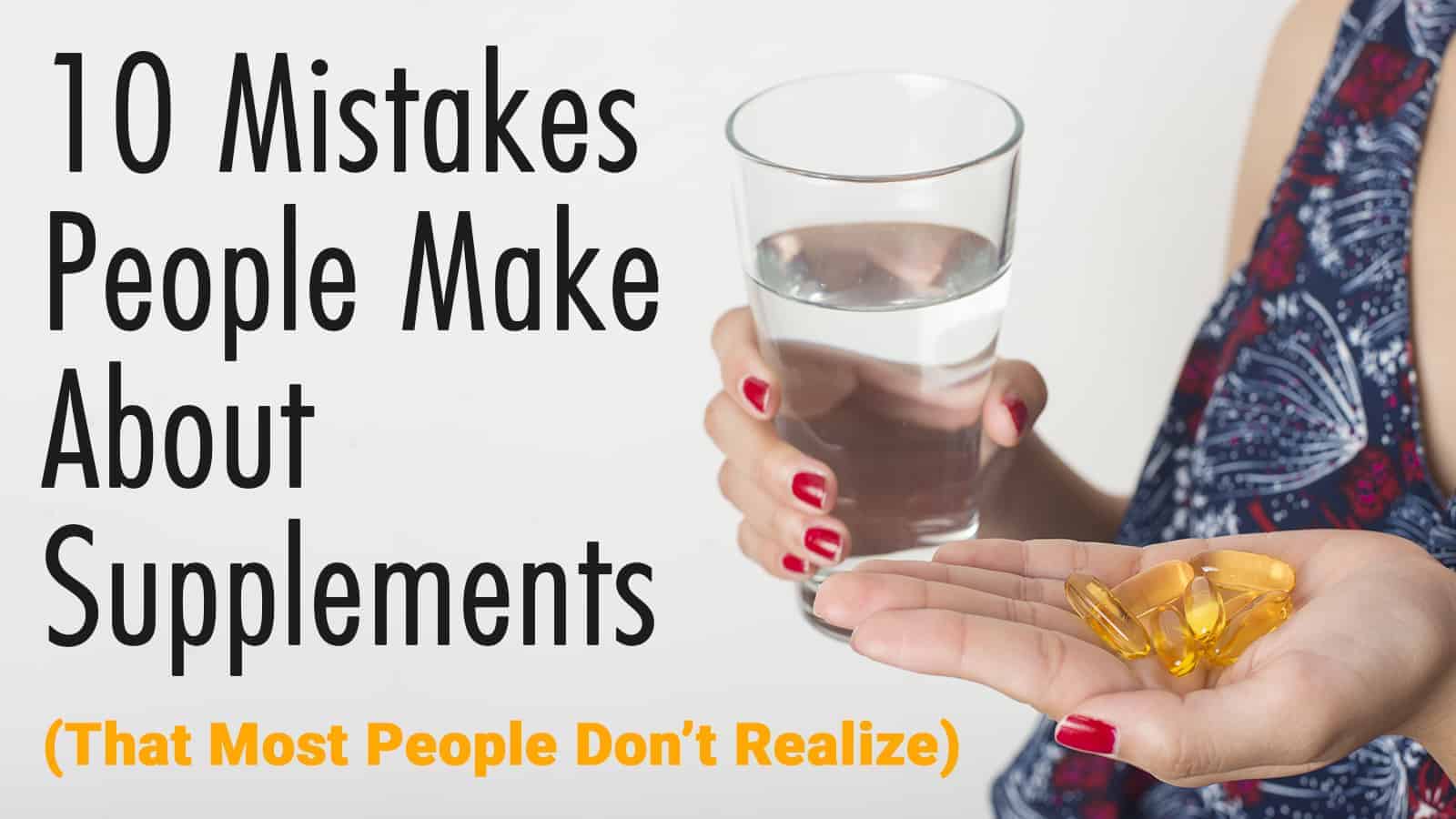It is estimated that two in every three Americans takes a dietary supplement at least once per day. Unsurprisingly, the supplement market is booming. The market research firm Grand View Research estimates that the market for supplements will reach nearly 280 million U.S. dollars (USD) by 2024. That’s a lot of pills. (But still a drop in the bucket compared to Big Pharma – a 100-billion-dollar industry.)
Researchers believe that rising obesity rates, ignorance regarding the benefits of supplements, and a nationwide stress epidemic all contribute to the rapid growth of the nutritional supplement market.
A Background on Supplements
“Dietary supplements” include products such as amino acids, botanicals, enzymes, herbals, vitamins, and minerals. Supplements come in many forms, including capsules, tablets, powders, beverages, and energy foods.
While plenty of evidence exists demonstrating the health benefits of supplements, they are not intended to replace whole foods. Indeed, this misconception and subsequent misuse can prove harmful to health.
It is apparent that a disproportionate amount of information exists pertaining to the potential benefits of supplementation, and not nearly as much about possible harmful effects. Most people, including doctors and nutritionists, concede that supplements can be beneficial to health under the right conditions. But when common sense is not applied, supplements can be hazardous.
Here are 10 Misconceptions People Have about Taking Supplements
1. “The sun will give me all the vitamin D that I need.”
The primary role of vitamin D is to absorb calcium, and calcium is critical to bone health.
There are two types of vitamin D – D2 and D3. We don’t get much D2 or D3 from food, which is why some food products are fortified. And, while the sun can provide enough “D” during sunnier months, your body may not get enough during the winter months.
2. “All probiotics are the same.”
Health-promoting microorganisms that reside in the gut are called probiotics. Probiotics may help promote a healthy digestive tract and immune system.
There are a bunch of misconceptions – and flat-out lies from food companies – about probiotics, the biggest one being that all probiotics are essentially the same.
Dr. Pat Hibbard, a pediatrician and chief of global health at Massachusetts Children’s Hospital, states, “This is absolutely wrong,” as two probiotics may consist of completely different strains of organisms. As such, you’ll need to be sure that any probiotics you take are the kind your body needs.
3. “I need calcium supplements.”
We need calcium for strong, healthy, durable bones. But there is a proliferating myth that older adults need a supplement – and this isn’t necessarily true. If you eat plenty of seeds, chest, dairy, sardines, lentils, almonds, or leafy greens, you may not.
You can find your recommended daily intakes (RDI) for vitamins and nutrients here.
4. “I need a multi-vitamin.”
Once again, the question of whether you need a multivitamin (or any supplement) depends on your diet. A multivitamin is convenient because it gives you most of what you need nutritionally in a few pills instead of having to eat a bunch of foods. Just make sure that you’re not overdoing it or getting more than you should of any particular vitamin or mineral.
5. “Taking a bunch of random pills is okay.”
This belief is wrong on many levels. First, supplements can interact with prescription medications – and this can be very dangerous. Second, as implied earlier, more of a vitamin or mineral is not necessarily a good thing. There is such a thing as nutritional toxicity, where the body is unable to rid itself of excess levels of nutrients in the blood. Again, this is a potentially dangerous situation.
Know what is going into your body – and how much.
6. “I don’t need supplements.”
Maybe you don’t. Just bear in mind that you must be able to answer ‘yes’ to the following three questions:
(1) Is your diet well-balanced?
(2) Do you eat the right amounts of each food group?
(3) Do you maintain a well-balanced, well-proportioned diet every day?
7. “All supplements are safe.”
Many, perhaps most, supplements are very safe. Like prescription and non-prescription drugs, however, not all supplements are created equal. And, like drugs, the Food and Drug Administration (FDA) has had to yank products off the shelves. A prominent example of the possible dangers of supplements is ephedra – the once-popular weight-loss ingredient. Ephedra was banned in 2004 after the FDA received reports of over 16,000 adverse health cases involving nearly 200 deaths.
8. “It’s okay to mix supplements with prescription drugs.”
It may be okay, but you should check out known interactions between supplements and any medications you are taking. Supplements may alter the absorption, function, and excretion of prescription drugs. In rare instances, an interaction may be dangerous and even life-threatening.
. “I can trust the labels.”
Like every other private company, supplement manufacturers exist to make a profit. And, like most other industries, there are both good and bad actors. Err on the side of caution and look for the following information:
- Certification: Look for the letters ‘GMP’ and USP’; United States Pharmacopeia, and Good Manufacturing Practices, respectively.
- Price: Don’t buy cheap or exorbitantly expensive supplements. (Certification costs companies money so you can expect to pay a bit more here.)
- Reviews: Check out examine.com for unbiased information on supplement ingredients. Also, read the reviews of customers.
10. “It’s okay to give kids supplements.”
Check the RDIs according to age group. Children, especially young children, are much more sensitive to the effects of supplements. Also, if your child is on prescription medication, check with their doctor before giving them any supplement.
https://www.youtube.com/watch?v=7BNGVmwxoHI


















